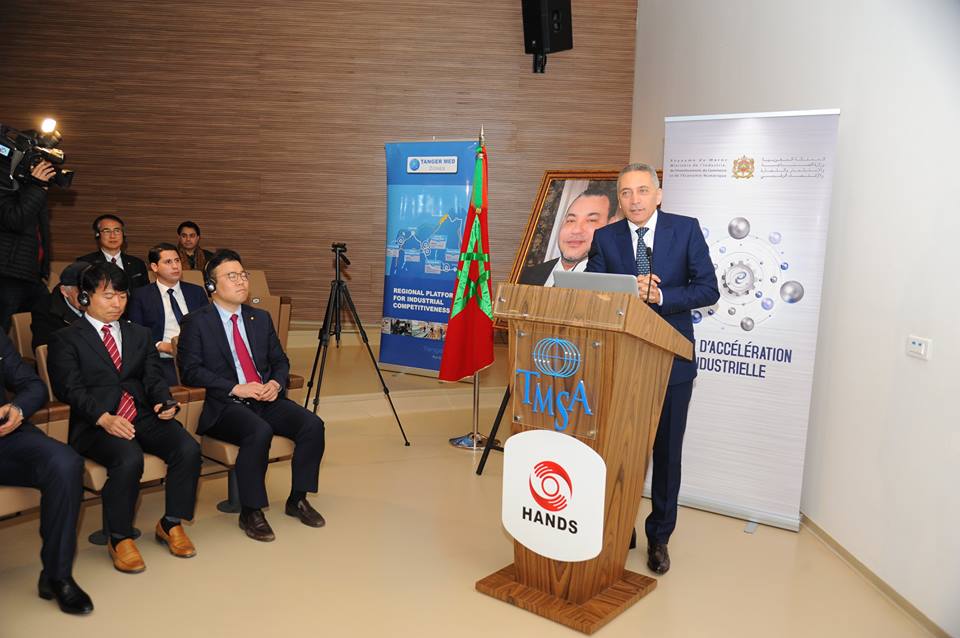Source: THE MOROCCAN “PAPER TERRORIST”
Amine El Khalifi as the Moroccan community in D.C. knows him. (Photo: glittarazzi )
 Washington / Morocco Board News– When the news that a Moroccan was arrested in Washington, D.C. on charges of terrorism, a friend of mine called. ”I thought it was you,” she joked. But the case of Amine El khalifi is no joke. It profoundly rattled the Moroccan community in the D.C. area. Many feel an unwarranted haze of suspicion floating over their heads now. They look over their shoulders. They fear the community will be singled out in intrusive federal probes, stereotyped by local businesses, and harassed by local law enforcement.
Washington / Morocco Board News– When the news that a Moroccan was arrested in Washington, D.C. on charges of terrorism, a friend of mine called. ”I thought it was you,” she joked. But the case of Amine El khalifi is no joke. It profoundly rattled the Moroccan community in the D.C. area. Many feel an unwarranted haze of suspicion floating over their heads now. They look over their shoulders. They fear the community will be singled out in intrusive federal probes, stereotyped by local businesses, and harassed by local law enforcement.
There is a concern the Moroccan community will be demonized and viewed as a source of “stealth Jihadist.” In coffee shops where Moroccans congregate, some expressed anger at El Khalifi; “he brought shame and embarrassment upon the Moroccan community not just in the D.C. area, but across the United States,” they vehemently retort. He deserves his fate some say.
Amine’s brother and cousin, also living in the U.S., are stellar individuals; his father is a hard working, law abiding and respected teacher in Casablanca. He, on the other hand, was rumored to have brought the rambunctiousness of the old m’dina with him. Since he landed here, at the age of seventeen, his life seemed to follow a script written by Antonio “Tony” Montana, the fictional character known as Scareface. His dream was to make beaucoup money and fast by any means necessary. I have seen him a couple of times lingering in a coffee shop in Arlington, VA, twirling the keys to his BMW, looking for action. He was known in the community as a player, a drug dealer and user, infamous for his vainness and dalliances with young women in Layla lounge and other such clubs where he peddled narcotics. Hardly the profile of a suicide bomber wanna-be. Prior to his arrest, he was never convicted of any crimes. His drug trafficking and use are unsubstantiated allegations.
Overnight, he replaced the twirling BMW keys with prayer beads, grew whiskers, and raised the banner of Islam. He seemingly found Allah and became a devout Moslem. Never mind he couldn’t recite more than a few short Coranic verses, nor could he speak smartly about moderate Islamic doctrines and interpretations, let alone radical Islamic fundamentalism. Those who know him attest he was never in the thrall of radical Islam. They considered his piousness with a bit of sarcasm.
Amine was more of a threat as an alleged drug dealer and junkie than as a Moslem terrorist. He practiced on how to use the gun the FBI gave him, a MAC-10, in a hotel room. He could have gotten more training value from Elevator Action: Death Parade video shooting game in a public arcade. He had never handled a gun until the FBI urged him on. He was so incompetent, he failed to notice the MAC-10 he was given was missing a firing pin. He couldn’t tell the difference between C-4 and glazing putty. Many believe he was incapable of blowing himself up, or shooting anybody. He should have been arrested on drug charges a long time ago; it would have been cheaper if he were detained for being in the U.S. illegally and deported back to Morocco.
The FBI’s development of Amine into an operational “paper terrorist” serves many objectives. It demonizes a Moslem community and enkindle the fear of terrorism; Amine El Khalifi and other similar cases, in which the FBI and local police authorities operate in a grey area, using dubious methods some consider akin to entrapment, constitute ammunition to conservative politicians with an anti-immigration agenda. It justifies the extra-judicial collection on U.S. persons – surveillance on the Moroccan community in New York for instance – because the latest amendment to E.O. 12333 considers terrorism an exception. It gives Lisa Monaco, the assistant attorney general for the Justice Department’s national security division, the opportunity to comment: “Today’s case underscores the continuing threat we face from home-grown violent extremists. Thanks to a coordinated law enforcement effort, El Khalifi’s alleged plot was thwarted before anyone was harmed.”
What saddens me is that no one talks about the Moroccans, some citizens and others residents, who lost their lives in support of the War on Terrorism. No one thanks those who are today serving in Afghanistan and who served in Iraq in defense of the U.S. constitution and the ideals it stands for.
I know quite a few Moroccans who, to escape the accusatory looks of friends and neighbors, changed their names to Latin or Anglo-Saxon ones. I was asked once what I thought of it. I am totally opposed to it for the simple reason that I believe we need to grow more cohesive as a community, strive for coexistence instead of a mindless social camouflage. We need to embraces our Moroccan identity and, as American citizens and residents, treasure and defend the principles and institutions of our adoptive home.
My only advice to those who are still considering changing their names is to stir clear of “Timothy McVeigh.” It has an unflattering history.



